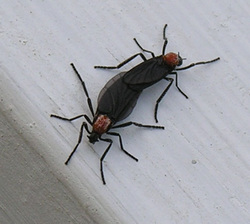
Lovebugs are a type of March Fly originally native to Central America, which have migrated up the Gulf Coast and farther eastward. For the most part, we rarely see Lovebugs in Atlanta, GA, because it spends most of its life as a larvae underground. There it plays a vital role feeding on decaying vegetation and aerating soil. Surprisingly, this is where Lovebugs are most vulnerable. When Lovebugs migrated, they originally appeared in much greater numbers because they'd escaped the species that limited their population in Central America. Eventually, those species caught up with the Lovebugs, mostly certain kinds of fungi that infect their larvae. During the months of late April to May, and again in August through September, the adult Lovebugs, now flying insects, erupt from the ground to mate. This is generally when we see Lovebug swarms and where they become problematic to car owners.
Lovebugs in Atlanta, GA, swarm around highways and other roads, which is where they come in contact with cars. Compared to other flying insects, these guys aren't huge, averaging about a third of an inch long, but when they swarm, their numbers make up for their size. When they collide with a car, which is likely to happen, they obviously don't do any immediate damage; However, if they're little bodies are left on a car too long, say a day or so, problems can occur. Normally a Lovebug's body has a neutral pH, meaning it's between acidity and basicity, kinda like water, milk, or even our blood. Lemon juice is an example of an acid, and bleach is an example of a base. You probably wouldn't want to leave either one on your car, right? Well, the same goes for Lovebugs because as they decompose, their bodies become more acidic.
Dead, acidic Lovebugs left on cars can pit and scar paint jobs and chrome. Newer cars are probably less susceptible to acid damage from bugs, but you still don't want to let these little buggers leave their marks. Besides ruining paint jobs, Lovebugs, like other flying insects, can clog a car's grill, preventing the proper ventilation an engine needs to run properly.
How should you prepare for Lovebugs in Atlanta, GA? Combating Lovebugs with insecticides is futile if not counterproductive. They can easily avoid poisons, whereas other, beneficial flying-insects like honeybees might be harmed. Fortunately, there are a few things car owners can do to protect their cars from Lovebug damage. First, Lovebugs have a pretty regular life cycle, so you can count on them appearing sometime in April to May and August to September. Prepare before hand by waxing your car. This helps protect your paint job, but it also makes it a lot easier to clean those guys off. Second, mating Lovebugs are primarily active during the day, so plan your trips in the early morning and during the evening. Reduce your speed to limit the number of bugs splattered. If your car does hit a swarm, try to wash them off before they're exposed to too much sunlight. The longer a bug sits on your car, the more likely it is to acidify. Should you have more questions, please contact your Atlanta pest control provider at 678-553-4521

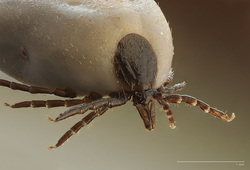
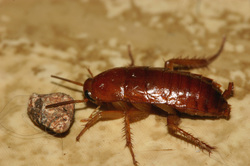

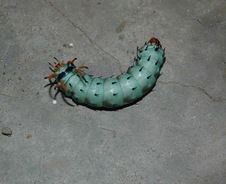
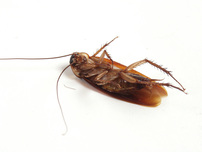
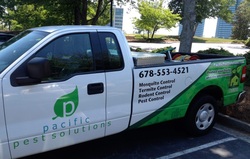
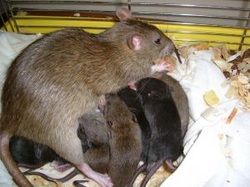

 RSS Feed
RSS Feed
